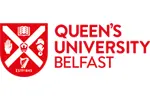We're moving! This site will be relocating to goingto.university in 2026. Please update your bookmarks to the new address.


the United Kingdom
Queen's University Belfast| The award | How you will study | Study duration | Course start | Domestic course fees | International course fees |
|---|---|---|---|---|---|
| MSc | Full-time, Part-time | 1 - 2 year | September | - | GBP 18200 per year |
Completion of this one-year conversion Masters, following your undergraduate qualification, will allow you to become an accredited planner. Planning is a fascinating subject to study at university. It is about changing the places within which we live. How we can transform and improve our cities, towns, villages, neighbourhoods, and communities. So, it affects our everyday lives and is an extremely exciting discipline to study at university. A Planning degree provides you with the knowledge and skills to be able to make decisions that shape the processes of growth and development. We currently face many major challenges - for example, attracting investment, creating jobs, protecting the environment, energy policy, housing supply, transport links, providing local amenities, protecting health and wellbeing - and Planning affects how these things happen. Therefore, as future planners you will have a very important role to play in shaping the future. Planning is a broad subject matter and planners perform many different roles relating to the natural, physical, economic, social, and cultural environments that we live in. Given this, Planning offers a wide spectrum of employment opportunities. Studying Planning will equip you with the knowledge to understand how cities, towns, villages, communities, and neighbourhoods function and operate, and then have the skills to make decisions that shape how they grow and prosper. The discipline of Planning is located in the School of Natural and Built Environment, David Keir Building on Stranmillis Road, Belfast. COURSE CONTENT The course's primary focus is on attaining a professional qualification. It is designed as a conversion Masters for graduates in any undergraduate subject to provide a broad knowledge of planning and the professional skills and experience you'll need to forge a career in this area. Your dissertation may be a work-based project, working for a client organisation on a brief that they commission. You will learn the use of techniques (GIS, design software, statistical analysis) but more importantly, how to apply them to solve problems, create new solutions for the built environment and understand the complexity of environmental management. THE ENVIRONMENT You'll be working in an applied problem-solving environment, confronting genuine challenges in the field and making a real contribution to sustainable environments. We place an emphasis on projects on live planning problems such as a Development Plan exercise for a client (local authority), on studio work and applied learning outside the class including problem-solving with controversial proposals, such as fracking and windfarm applications. You'll work with your fellow students in teams to find practical approaches to the management and development of the built environment.
Contact Queen's University Belfast to find course entry requirements.
Below are some suggested courses at other providers that you may also be interested in:
Graduate Diploma of Engineering (Electrical Systems) Graduate Diploma
Engineering Institute of Technology
Find out moreGraduate Dilpoma: Art & Design Graduate Diploma
University for the Creative Arts (UCA)
Find out moreCommunity Specialist Practice (District Nursing) PG Dip, Graduate Diploma
University of Cumbria
Find out moreEquine Locomotor Research (GradDip ELR) USA Graduate Diploma
The Royal Veterinary College (RVC)
Find out moreIf you do not meet the entry requirements for this course then consider one of these postgraduate preparation courses from another institution:
Graduate Diploma of Engineering (Electrical Systems)
Engineering Institute of Technology
Find out moreThere are 462 other courses listed from Queen's University Belfast. A selection of these are displayed below:
Join the StudyLink email list and never miss a chance to turn your study abroad dreams into reality!

See other universities in Belfast
Find out more about studying in the United Kingdom